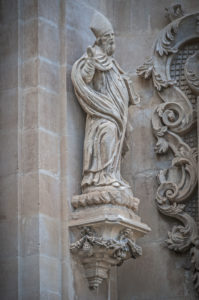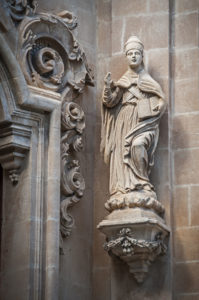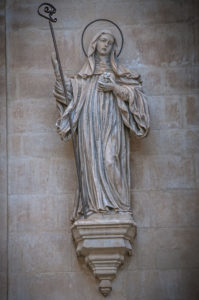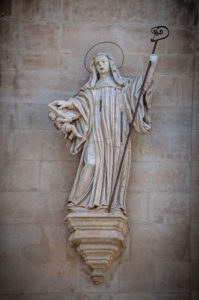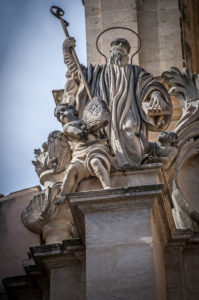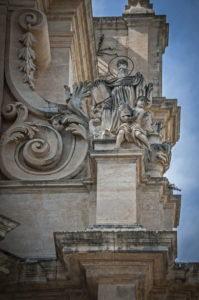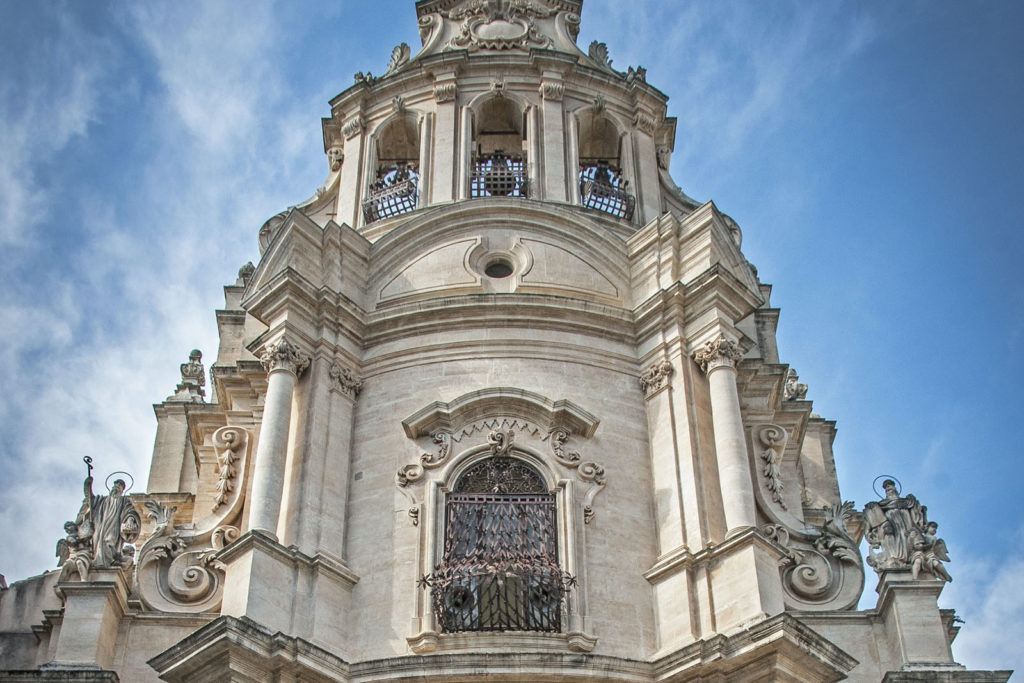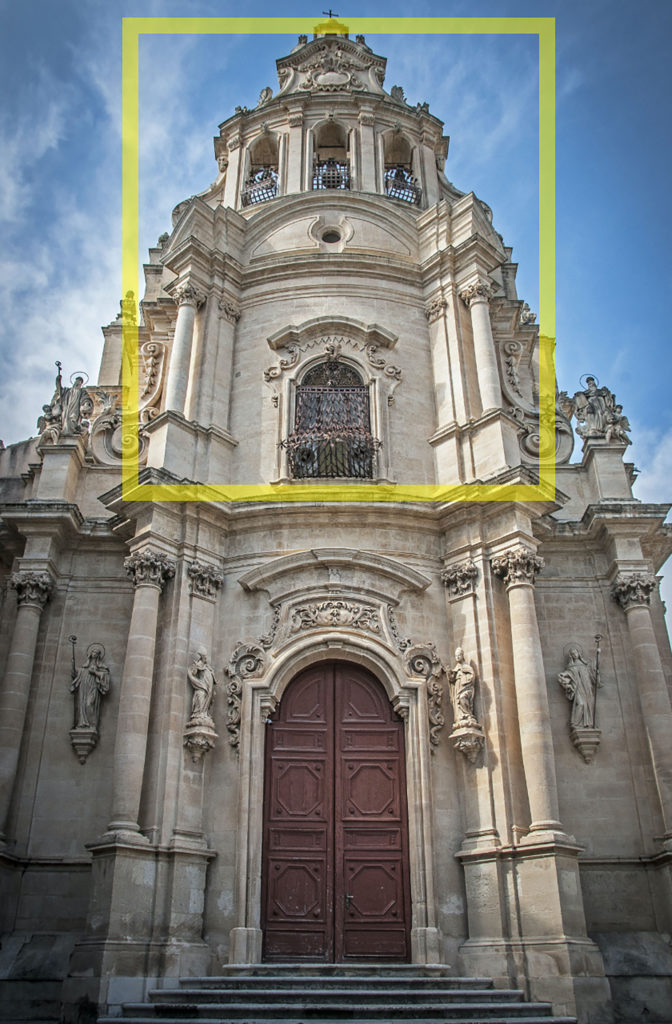The church of San Giuseppe (St. Joseph) is small and occupies a much smaller space than large cathedrals. This, however, did not prevent it from featuring prominently in the square. This was made possible by the design choices of the Friar Alberto Maria di San Giovanni Battista.
The façade of the new building was built further back than the previous church of San Tommaso (St. Thomas) to make it more visible from the street.
The façade is divided into three levels: in the first there is the entrance portal, on the second a
louvre window

, and the third acts as a bell tower.
This means that the different levels are different in size; the tallest segment contains the portal, followed by the middle and end segments.
The division, however, is not only horizontal; the
free-standing columns

and
pilasters

, resting on high bases divide the façade into three vertical parts.
This creates a play of light and shadow that seems to make the façade move; the architect achieved this effect using various decorative elements in relief and a design that sees the central part protrude further than the side sections.
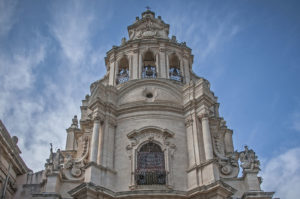
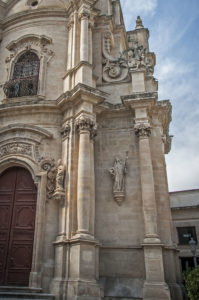
Six statues of Benedictine saints were placed on the façade: two bishop saints were placed to the sides of the portal, St. Gertrude and Scholastica on the lateral sections, and St. Benedict and St. Maurus on the second level.
